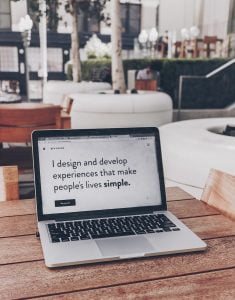
Your Website, Your Rules: Why Wix, Squarespace, GoDaddy’s Web Builder, and Other Website Builders Might Not Be the Best Fit for You

Hey there, fellow web enthusiasts! In the world of DIY website building, platforms like Wix, Squarespace, and GoDaddy’s Web Builder have become the go-to pals for many. But hold up – before you dive headfirst into the convenience pool, let’s have a friendly chat about why these platforms might not be the perfect partners for your website-building journey.
- Your Website, Your Style:
Imagine you’re throwing a party, and everyone shows up wearing the same outfit. Not the vibe you’re going for, right? Well, that’s a bit like what happens with website builders. They offer templates, but sometimes your website might end up looking a tad too similar to others. Customization is key, and these platforms might cramp your style when it comes to creating a unique online home. - Brand Identity – Let It Shine:
Your brand is like the superhero cape of your website – it makes you stand out in the digital crowd. Unfortunately, website builders might not be the best sidekicks for showcasing your brand’s uniqueness. Customization options may not be robust enough to let your brand personality shine through, leaving your website feeling a bit like a cookie-cutter creation. - SEO: More Than Just Three Letters:
Ah, the mysterious world of SEO – Search Engine Optimization. If you want your website to be the superhero that gets noticed, you’ll need a solid SEO strategy. Here’s the hitch – website builders might not be the best mentors for your SEO journey. Limited customization can impact your ability to optimize crucial elements, potentially leaving your website stranded on the outskirts of search engine results. - Who Holds the Reins? Ownership Matters:
Picture this: you throw a fantastic party at someone else’s house, but you can’t control the guest list or the playlist. Not so fun, right? Well, with website builders, you might face a similar lack of control. These platforms come with terms and conditions that might limit your ownership and control over your own website. It’s your website – shouldn’t you be the one calling the shots? - Speed – The Need for Quick Loading:
We all love a speedy website, right? Picture opening a site, and it takes ages to load – not ideal. Website builders might not be the speed demons you’re looking for. The code they generate might not be as optimized as it could be, leading to slower loading times. And let’s face it, in the fast-paced online world, nobody likes to wait – not even for the coolest website.
Conclusion:
While website builders offer a quick fix, they might not be the ideal companions for your unique website-building adventure. Your website should be as special as you are – customizable, brand-focused, SEO-savvy, and under your complete control. So, before you embark on your digital journey, think about whether you want a website that’s just okay or one that truly reflects the awesome uniqueness that is you. Cheers to building something extraordinary!


 In today’s digital age, having a website is essential for any business, big or small. Your website is often the first point of contact for potential customers, and it’s important to make a good impression. One of the most important aspects of a successful website is its design. Good website design can help your business stand out from the competition, attract and retain customers, and ultimately drive revenue.
In today’s digital age, having a website is essential for any business, big or small. Your website is often the first point of contact for potential customers, and it’s important to make a good impression. One of the most important aspects of a successful website is its design. Good website design can help your business stand out from the competition, attract and retain customers, and ultimately drive revenue.